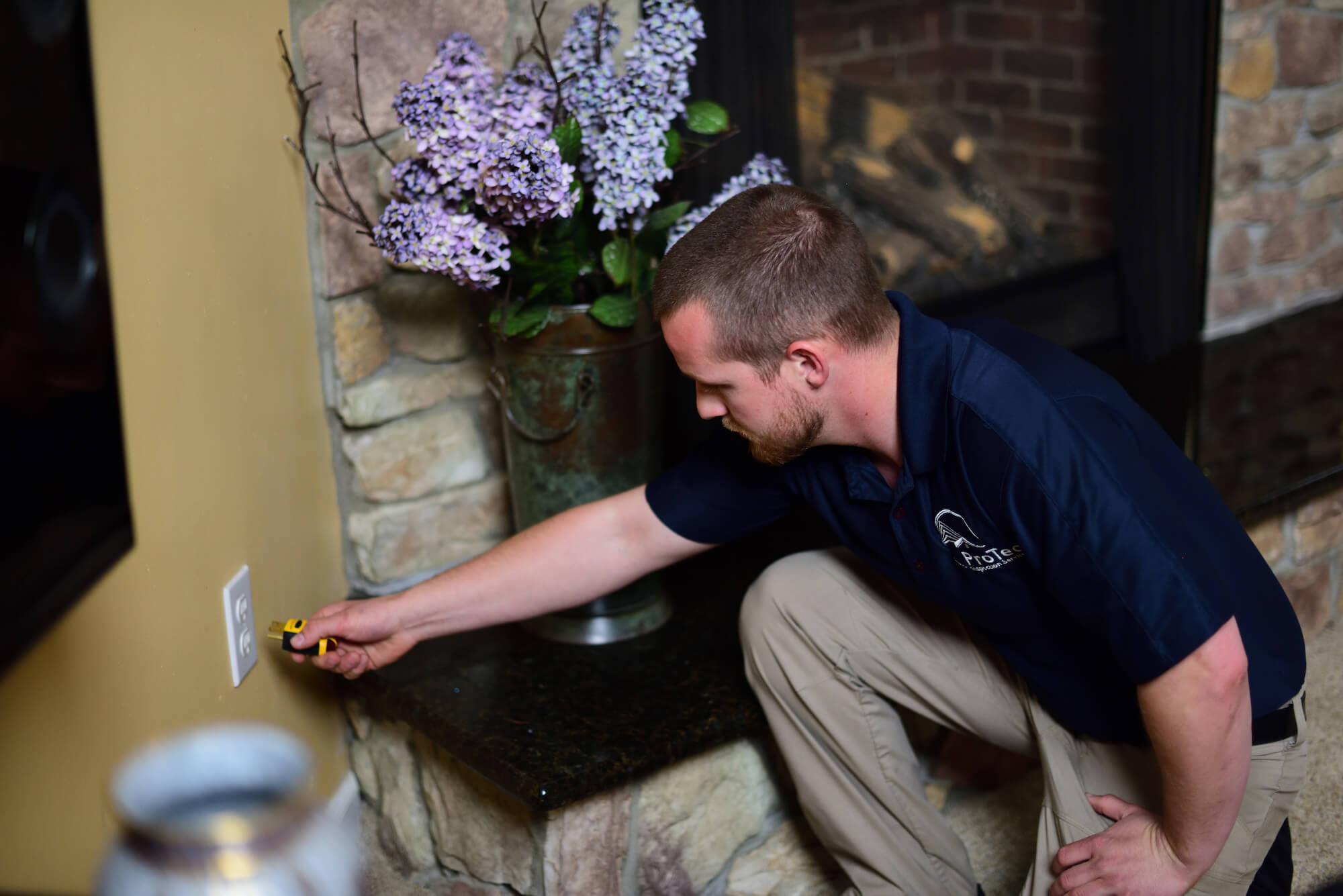What is an electrical inspection?


What is an electrical inspection, and why do homeowners and building owners need one?
Electrical systems are a vital part of any home or building. As such, ensuring the safety, functionality, and compliance of these systems is important, and that's where an electrical inspection comes into play.
In an electrical inspection, a home inspector or building inspector will thoroughly examine all of the electrical components within a property, from wiring and circuits to outlets and panels to reveal potential hazards, code violations, and any issues that could compromise the safety of occupants, and the condition of the home or the building.
Like any inspection process, the purpose of an electrical inspection is to ensure that a home or building is safe for the people living or working there. Specifically, an electrical inspection assesses the property's electrical systems to make sure they meet safety codes, regulations, and industry standards.
Electrical systems are necessary, but if faulty, they can be dangerous.
Getting an inspection protects buyers and/or occupants from potential hazards such as electrical fires or shocks but also contributes to the overall well-being of the structure. An inspection makes sure that everything is in proper working order, free from defects, and designed to handle the electrical demands of the property. That way, a buyer can be aware of any areas of concern and plan for necessary repairs.
What does an electrical inspector actually do?
The specifics might vary based on whether an electrical inspection is done by a home inspector for a house or a building inspector for a commercial building. Regardless, there are a few basics that every inspector will check, including the condition of:
An inspector will also check for signs of wear and tear, proper installations, adherence to codes, and potential overload risks.
While both inspections involve evaluating electrical systems, they differ in scope and purpose and are performed by different inspectors.
A residential electrical home inspection focuses on the electrical components of a residential property, whereas an electrical building inspection is conducted for larger structures, such as commercial buildings or multi-unit residential complexes.
An electrical home inspection assesses the safety and functionality of a property's electrical systems and is done by a certified home inspector. This includes evaluating outlets, lighting fixtures, wiring, circuit breakers, and the electrical panel.
In an electrical inspection, the home inspector will:
Conducted by a building inspector or a certified electrical inspector, an electrical building inspection goes beyond individual homes. It covers more extensive systems and involves assessing the electrical infrastructure of larger properties, ensuring compliance with local building codes and regulations.
The importance of an electrical inspection cannot be overstated for both homeowners and building owners. Electrical inspections done before buying will help the future home or building owner understand any electrical risk of the property.
For homeowners, these inspections offer a comprehensive assessment of their property's electrical health, identifying potential hazards that might otherwise remain hidden. An inspection will help keep your family members safe, and can prevent electrical emergencies, and contributes to the longevity of the property.
For building owners, regular electrical inspections are a critical component of responsible property management. By adhering to safety codes and regulations, building owners minimize liability risks and create a safe environment for tenants, employees, and visitors. Additionally, these inspections facilitate the early detection of electrical issues, allowing for prompt intervention and the prevention of more extensive problems that could disrupt operations or endanger occupants.
Ultimately, investing in electrical inspections is an investment in the safety, functionality, and long-term value of properties
The average cost of an inspection is between $300 and $500, depending on what state you live in. An electrical inspection is part of a standard home inspection, so homeowners will not see an additional cost.
Yes, an electrical inspection is highly recommended when purchasing a property to ensure its electrical systems are safe and up to code.
Unless you are a certified professional, you should not perform your own electrical inspection. Home inspectors, building inspectors, and electrical professionals are able to identify critical issues that the untrained person might not be able to spot.
If there are any defects or issues found in your electrical inspection, the inspector will provide recommendations for repairs or upgrades to ensure safety and compliance.